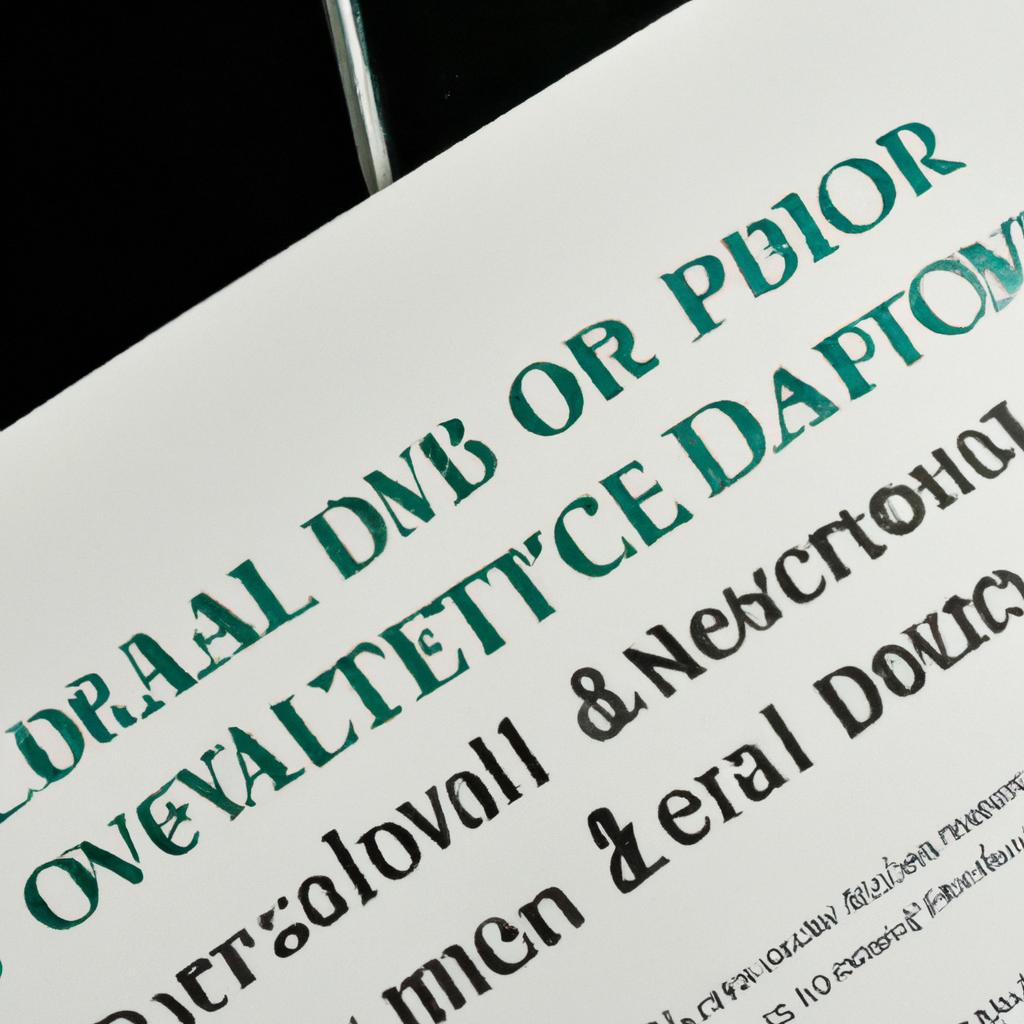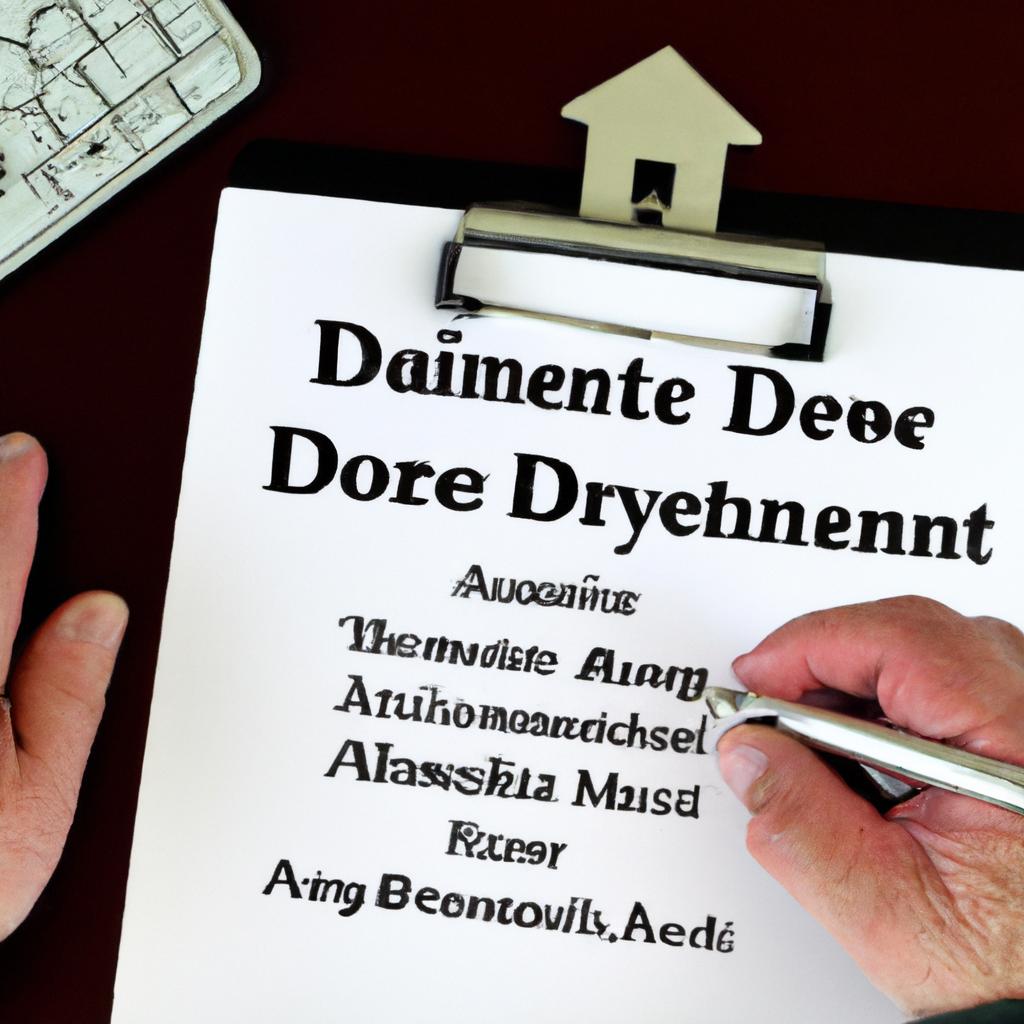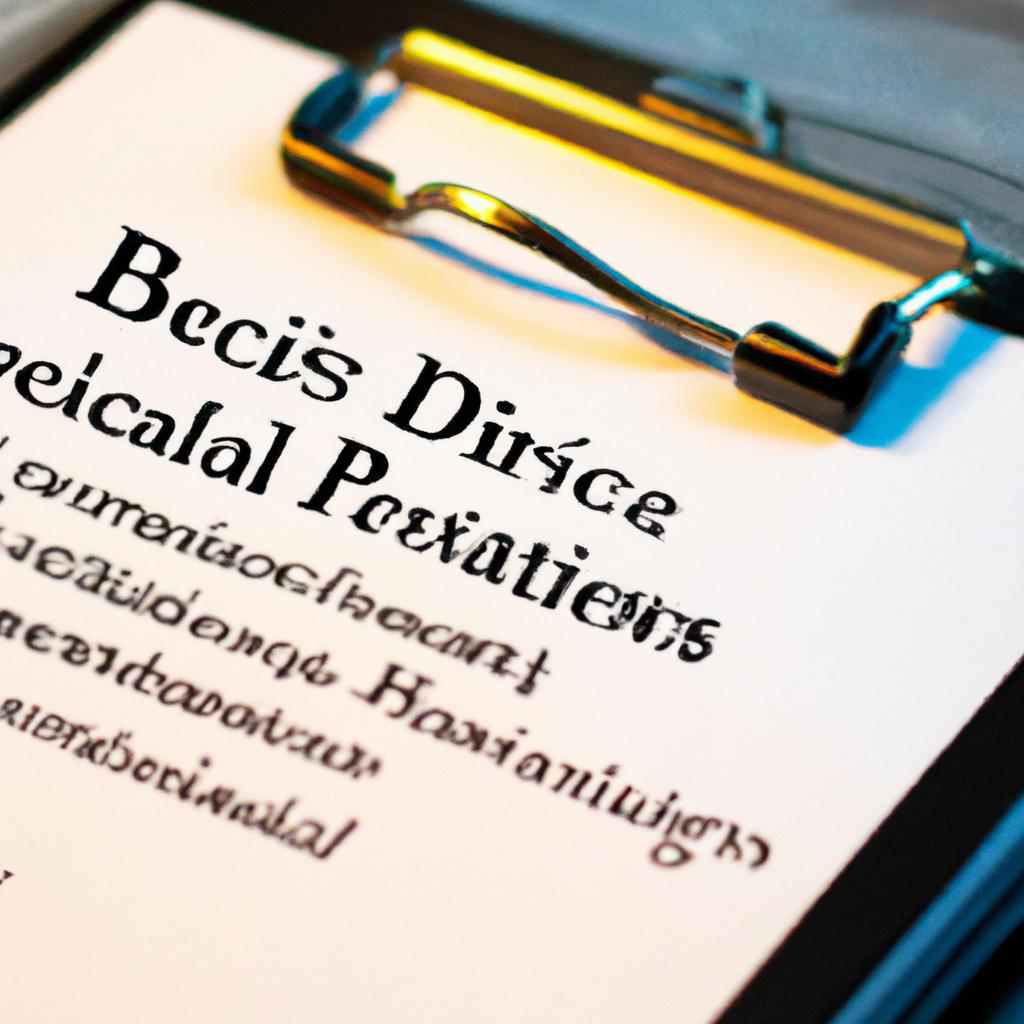In the realm of healthcare decision-making, the interplay between a medical power of attorney and a do-not-resuscitate (DNR) order can present complex legal issues. As experienced attorneys at Morgan Legal Group in New York City, we understand the importance of navigating these delicate matters with precision and clarity. In this article, we will delve into the question: Can a medical power of attorney override a DNR, shedding light on the legal principles that govern this intersection of end-of-life care and patient autonomy.
Medical Power of Attorney vs. Do Not Resuscitate Orders: Understanding the Hierarchy of Decision-Making
Understanding the Hierarchy of Decision-Making
When it comes to making critical medical decisions, it’s essential to understand the hierarchy of decision-making between a medical power of attorney and a Do Not Resuscitate (DNR) order. While both play a crucial role in ensuring your wishes are respected in times of medical crisis, there are specific guidelines that dictate which one takes precedence in certain situations.
Here’s a breakdown of how the hierarchy of decision-making works:
- Medical Power of Attorney: This legal document designates a trusted individual to make healthcare decisions on your behalf if you are unable to do so. Your designated agent, also known as your healthcare proxy, is obligated to follow your wishes as outlined in the document.
- Do Not Resuscitate (DNR) Order: A DNR order is a medical directive that instructs healthcare providers not to perform cardiopulmonary resuscitation (CPR) if your heart stops or you stop breathing. This order is typically written and signed by a physician based on your expressed wishes or those of your designated healthcare proxy.

The Intersection of Legal Documents: Navigating the Relationship Between a Medical Power of Attorney and a DNR
When it comes to navigating the complex intersection of legal documents in the healthcare setting, one common question that arises is whether a medical power of attorney can override a Do Not Resuscitate (DNR) order. In order to understand the relationship between these two legal documents, it is important to first understand the purpose and function of each.
A medical power of attorney, also known as a healthcare proxy, is a legal document that designates an individual to make medical decisions on behalf of another person in the event that they are unable to make those decisions for themselves. On the other hand, a DNR order is a medical order that instructs healthcare providers not to perform cardiopulmonary resuscitation (CPR) in the event that a patient’s heart stops or they stop breathing. While both documents are important tools in healthcare decision-making, it is crucial to understand that a medical power of attorney does not necessarily override a DNR order. The decision of whether to administer CPR is typically based on the individual’s wishes and medical condition at the time, and it is important for all parties involved to understand and respect these wishes.

Evaluating the Balance of Authority: When a Medical Power of Attorney May Override a DNR
When it comes to navigating the delicate balance of authority in medical decision-making, the intersection of a medical power of attorney (POA) and a Do Not Resuscitate (DNR) order can present complex legal and ethical considerations. While both documents play crucial roles in outlining a patient’s wishes and assigning decision-making authority, conflicts may arise when the directives outlined in the documents appear to be in opposition. In such cases, the question of whether a medical power of attorney can override a DNR order becomes a critical issue that requires careful evaluation.
Under the laws of most states, a medical power of attorney typically grants the designated agent the authority to make healthcare decisions on behalf of the principal if they are deemed incapacitated. In situations where a conflict arises between the directives of the medical power of attorney and a DNR order, the agent’s decision-making power may override the DNR, depending on the specific language of the documents and the circumstances at hand. It is essential for individuals to carefully consider their choices when appointing a medical power of attorney and drafting a DNR order, ensuring that their wishes are clearly communicated and understood by all parties involved.

Best Practices for Ensuring Your End-of-Life Wishes Are Honored: Recommendations for Properly Drafting and Executing Medical Directives
In the realm of estate planning and advance directives, it is crucial to understand the hierarchy of documents when it comes to honoring end-of-life wishes. While a medical power of attorney (POA) grants an individual the authority to make healthcare decisions on your behalf, including potentially overriding a do-not-resuscitate (DNR) order, it is important to ensure that your wishes are clearly outlined in both documents to avoid any conflicts.
When drafting and executing medical directives, it is recommended to consult with experienced legal professionals who specialize in estate planning to ensure that your wishes are accurately reflected in the documents. Additionally, communicating your wishes with all relevant parties, including your healthcare proxy, family members, and healthcare providers, can help prevent misunderstandings and ensure that your end-of-life preferences are honored.
Q&A
Q: Can a medical power of attorney override a DNR order?
A: Yes, a medical power of attorney can potentially override a Do Not Resuscitate (DNR) order in certain situations.
Q: How does a medical power of attorney come into play with a DNR?
A: A medical power of attorney allows a designated individual to make healthcare decisions on behalf of the patient if they are unable to do so themselves. If the agent feels that resuscitation is in the best interest of the patient, they may override a pre-existing DNR order.
Q: What factors are considered when determining if a DNR should be overridden by a medical power of attorney?
A: The agent must consider the patient’s overall health, quality of life, and wishes before making a decision to override a DNR. It is important to consult with healthcare professionals and other family members to make the best decision for the patient.
Q: Can a DNR be reinstated after being overridden by a medical power of attorney?
A: Yes, if the patient regains decision-making capacity, they have the right to reinstate a DNR order even if it was previously overridden by their medical power of attorney.
Q: Are there any legal implications for overriding a DNR with a medical power of attorney?
A: It is important to consult with legal counsel to ensure that all decisions made by the medical power of attorney are in accordance with the law and the patient’s best interests. There may be legal implications if the agent acts outside of their authority or against the patient’s wishes.
Final Thoughts
In conclusion, the intersection of a medical power of attorney and a Do Not Resuscitate order can be a complex and delicate matter. While a medical power of attorney can have the authority to make decisions on behalf of a patient, it may not always override a DNR order. It is essential for individuals to clearly communicate their wishes in advance and consult with legal and medical professionals to ensure that their wishes are properly documented and respected. By understanding the implications of these legal documents, individuals can ensure that their end-of-life care aligns with their values and desires. Remember, careful planning and communication can empower individuals to have a say in their medical care even when they are unable to make decisions for themselves.
 Medical power of attorney and Do Not Resuscitate (DNR) are two important legal documents that deal with end-of-life care decisions. Both documents provide guidelines for medical professionals regarding a person’s wishes for their medical treatment in case they are unable to make decisions for themselves. While both of these documents serve a similar purpose, there may be instances where one may need to take precedence over the other. In this article, we will discuss whether a medical power of attorney can override a DNR, and what it means for patients and their loved ones.
Medical power of attorney and Do Not Resuscitate (DNR) are two important legal documents that deal with end-of-life care decisions. Both documents provide guidelines for medical professionals regarding a person’s wishes for their medical treatment in case they are unable to make decisions for themselves. While both of these documents serve a similar purpose, there may be instances where one may need to take precedence over the other. In this article, we will discuss whether a medical power of attorney can override a DNR, and what it means for patients and their loved ones.
What is a Medical Power of Attorney?
A medical power of attorney, also known as a healthcare proxy or healthcare power of attorney, is a legal document that allows a person (known as the principal) to appoint another individual (known as the agent) to make medical decisions on their behalf if they are unable to do so. The agent is typically a trusted family member or friend, who is chosen by the principal based on their understanding of the principal’s values and beliefs. The agent is usually granted broad decision-making power to ensure that their wishes are honored.
What is a Do Not Resuscitate (DNR) Order?
A Do Not Resuscitate (DNR) order is a medical document that instructs healthcare professionals not to attempt any life-saving measures, such as CPR or other invasive procedures, in case of cardiac or respiratory arrest. A DNR is only applicable in emergency situations, where a patient’s heart or breathing has stopped, and the decision to resuscitate must be made quickly. The decision to have a DNR is a personal choice and should be discussed with a doctor to ensure that the patient fully understands the implications.
Can a Medical Power of Attorney Override a DNR?
The short answer is yes, a medical power of attorney can override a DNR. Let’s dive deeper into why this is the case.
1. Legal Authority
A medical power of attorney is a legally binding document that gives the agent the authority to make medical decisions on behalf of the principal. This authority holds even if the principal is incapacitated or unable to communicate. On the other hand, a DNR is a medical order that is only applicable in an emergency situation. A DNR does not have the same legal clout as a medical power of attorney, as it does not grant decision-making power to another person.
2. Decision-Making Power
As mentioned earlier, a medical power of attorney gives the agent broad decision-making power when it comes to the principal’s medical treatment. The agent is empowered to make decisions that align with the principal’s wishes, even if it means going against the principal’s previous instructions or a DNR. A DNR, however, only specifies one particular decision (not to resuscitate) and cannot be used to make other medical decisions.
3. Lack of Clear Instructions
In some cases, a patient may have both a medical power of attorney and a DNR. In such situations, the medical power of attorney would take precedence as it provides clear and specific instructions for the agent to follow. A DNR, on the other hand, may not have sufficient information to make medical decisions. For example, a DNR does not specify which medical treatments the person would want if they were to become terminally ill, which could lead to confusion and conflicting decisions from medical professionals. In this case, the medical power of attorney can provide clear guidance in making these decisions.
It is essential to note that having a medical power of attorney does not automatically invalidate a DNR. If a patient has both documents, the agent must follow the instructions set forth in the medical power of attorney, but the DNR can still be honored in emergency situations as a medical order.
The Importance of Communication and Planning
The key to avoiding conflict and ensuring that your wishes are honored is open and honest communication with both your healthcare provider and the person appointed as your agent. It is crucial to have a conversation with your doctor to discuss your end-of-life care preferences and to have a written record of these decisions in the form of a medical power of attorney. It is also essential to have communication with your chosen agent, so they understand and can advocate for your wishes effectively.
Benefits and Practical Tips
Having a medical power of attorney in place can provide peace of mind for both patients and their loved ones. It ensures that your medical treatment preferences are clearly stated and honored, even if you are unable to make decisions for yourself. When choosing an agent, make sure to select someone who knows and respects your values, beliefs, and wishes.
Case Study
A real-life example of a medical power of attorney overriding a DNR occurred when a patient with a DNR in place was admitted to the hospital. The patient was deemed incapable of making medical decisions, and the family honored the DNR, resulting in the patient not receiving life-saving antibiotics for an infection. However, the medical team consulted the patient’s medical power of attorney, which stated their preference for all potentially lifesaving treatments to be administered, overriding the DNR. The patient received the necessary treatment and recovered. This case highlights the importance of having a medical power of attorney in place and ensuring that all individuals involved understand and respect the patient’s wishes.
In conclusion, while a DNR is an essential document for end-of-life care, a medical power of attorney takes precedence in decision-making. It ensures that a person’s wishes for their medical treatment are honored, even in unexpected situations. It is crucial to have open and honest communication with your healthcare provider, chosen agent, and family members to avoid conflicts and ensure that your preferences are respected.
A medical power of attorney and a DNR can coexist, but it is crucial to have a clear understanding of how they work together and to have proper documentation in place. By having these conversations and planning in advance, you can ensure that your medical treatment aligns with your values and beliefs. Remember to review and update these documents regularly as your preferences may change over time. Having a medical power of attorney is an important part of comprehensive end-of-life care planning and can provide peace of mind for both the patient and their loved ones.


